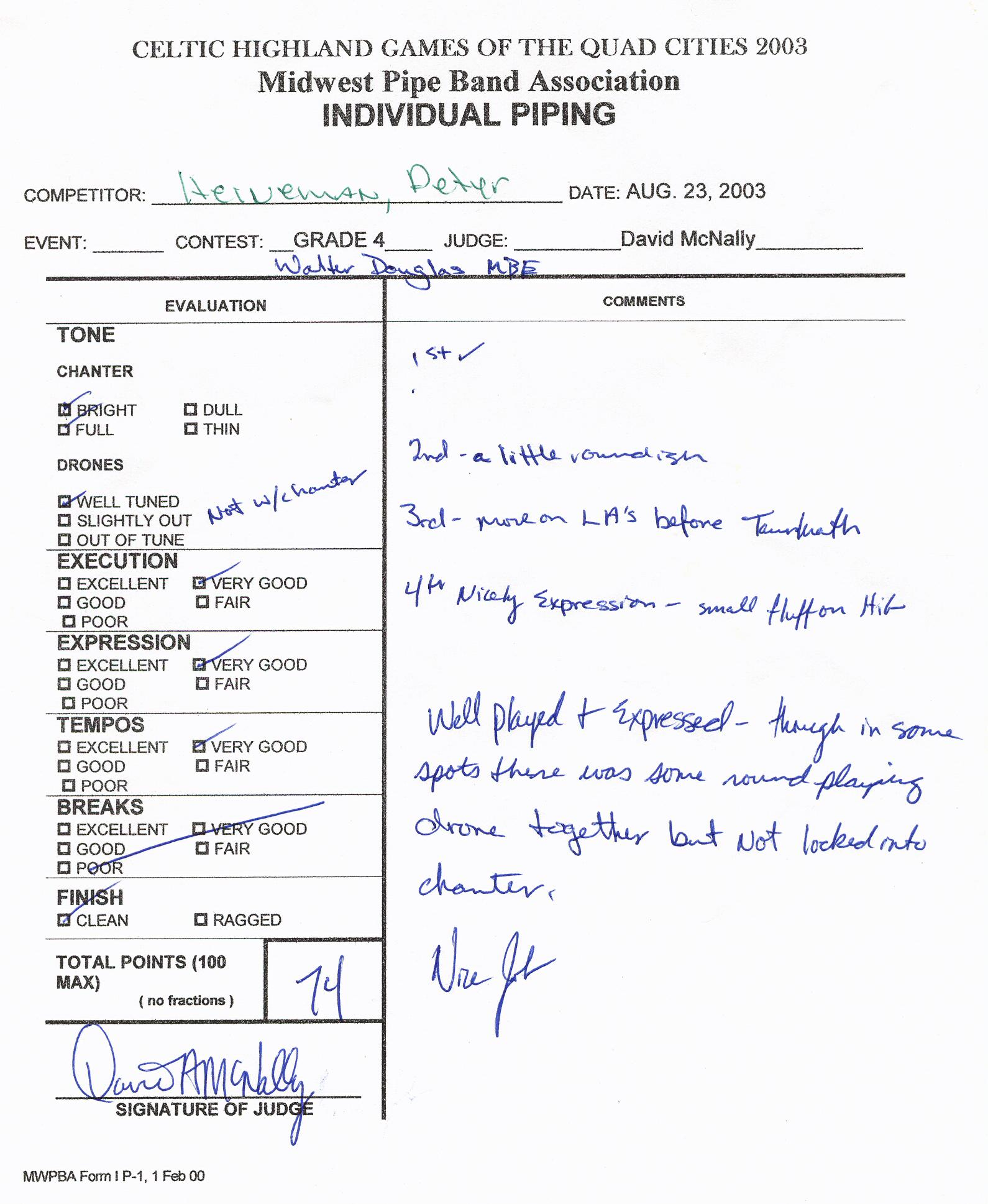| This Week’s Topic… | |

Best viewed in
|
What the Score on Your Sheet Really MeansA judge, after listening to your performance, may assign it a point value and note it on your adjudication sheet as well as—hopefully, but not always possible—lots of constructive comments. (Depending on your association guidelines, points will be assigned either immediately after your performance or after all competitors have played.) Piping scores aren't like a math test where you get points for each question. You don't earn a set number of points for each properly played embellishment or for consistent tempo or for each correct melody note. You should consider the points you get for a performance for that event only. If you score 50 on one day, it could be an 85 from another judge for the same performance. The only truly meaningful comparison of your own performance scores over time would require the same judge, the same event, the same competitors playing the same tunes in the same playing order, under the same circumstances—impossible. It is the opinion of some judges that the primary purpose of a score sheet is to justify the result, not to be used as a lesson for improvement. Since in many instances there are more faults than can be covered on the form, especially given the time constraints, many judges just comment on the fundamental flaws first. This means that even if the mentioned flaws were corrected in advance, that piper still may not have won a prize for that event. The judge will listen to the sound quality of the instrument: both tuning and timbre.
The judge will evaluate the technique and execution.
The judge listens to the "music".
Let’s take a look at one of my early score sheets as an example:
Not a bad performance but still needing improvement. Notice the comment about “rounding.” This means I didn’t play the “dot cuts” crisply…does that sound familiar? The chanter was also not in tune with the drones. Where you place in an event is much more telling than the score on your sheet. Use the feedback to polish your performance and improve your piping skills. |
